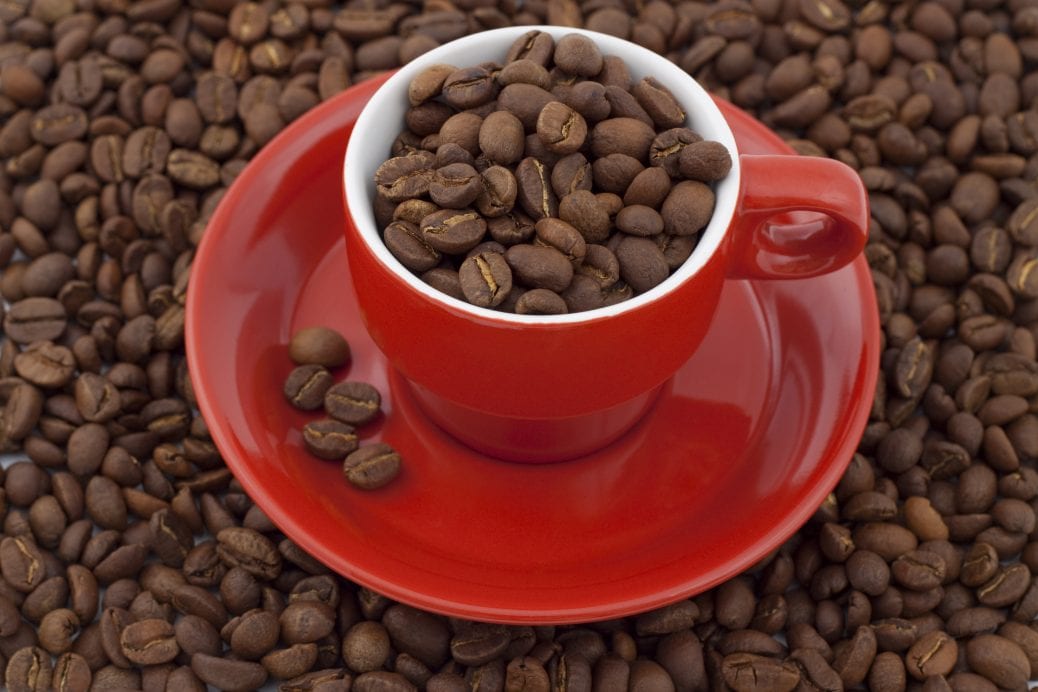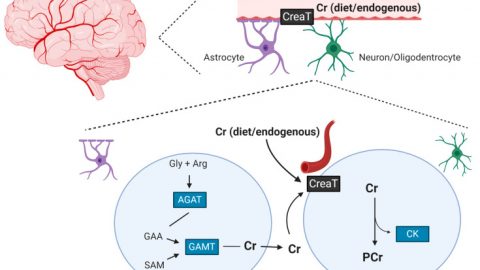I often say “there’s no sunshine without coffee.” A recent meta-analysis looked at coffee, caffeine (which are not interchangeable topics BTW…) as well as tea, and depressive symptoms. They authors concluded “According to our findings, coffee and dietary caffeine may have a protective effect against the development of depression. However, no evidence suggesting a link between tea consumption and reduced depressive symptoms has been found. Therefore, further longitudinal studies are needed to substantiate the causal relationship between coffee, tea, and caffeine and the risk of depression.”
So, coffee and caffeine appear to be beneficial to reducing depression, while tea does not. Another study just out also found moderate coffee intakes (e.g. 2-3 cups per day) was associated with the lowest rates of depression.
I have posted the abstracts below, and a link to the full paper for one of the studies for those who want to get the details. My goal with Alpha Joe Coffee Booster was to further enhance the mood and cognitive benefits of coffee with three key targeted ingredients data suggests should be of benefit to body and mind and “take your coffee to an 11!” as the motto goes.
Association between dietary caffeine, coffee, and tea consumption and depressive symptoms in adults: A systematic review and dose-response meta-analysis of observational studies
Front Nutr. 2023; 10: 1051444
Abstract
Background
Recent studies have reported an association between dietary caffeine intake (coffee and tea) and the presence of depressive symptoms. However, the findings are not conclusive.
Purpose
This study aimed to examine the correlation between the consumption of dietary caffeine (coffee and tea) and the presence of depressive symptoms in adults.
Methods
PubMed and Scopus databases were searched until December 2021. Two investigators analyzed data from identified studies and rated the quality of the evidence using the GRADE approach. Using the random-effects models, we estimated the relative risks (RRs) and 95% confidence intervals (CIs). We also modeled the dose-response associations through a one-stage, weighted mixed-effects meta-analysis.
Results
A total of 29 eligible studies included a total of 422,586 participants. On comparing the highest with the lowest category in cohort studies, we identified an inverse association between the intake of coffee and depressive symptoms (RR: 0.89, 95%CI: 0.82–0.95; I2 = 63.7%, GRADE = low). There was a 4% reduction in the risk of depression associated with an increase in coffee intake of 240 ml/day (RR: 0.96, 95%CI: 0.95, 0.98; I2 = 22.7%). By comparing the highest category with the lowest category in cohort studies, we discovered that caffeine intake was inversely associated with depressive symptoms (RR: 0.86, 95%CI: 0.79, 0.93; I2 = 0.0%, GRADE = moderate). Based on our data analysis, no correlation exists between tea consumption and depressive symptoms.
Conclusion
According to our findings, coffee and dietary caffeine may have a protective effect against the development of depression. However, no evidence suggesting a link between tea consumption and reduced depressive symptoms has been found. Therefore, further longitudinal studies are needed to substantiate the causal relationship between coffee, tea, and caffeine and the risk of depression.
The association between coffee consumption and risk of incident depression and anxiety: Exploring the benefits of moderate intake.
Psychiatry Research 2023 June 18
Accumulating evidence has reported the associations of coffee consumption with physical conditions and mortality, but the associations with mental disorders were limited. The objective of this study was to examine the associations of coffee consumption with incident depression and anxiety, and to assess whether the associations differed by coffee subtypes (instant, ground, and decaffeinated coffee) or additives (milk, sugar-sweetened, and artificial-sweetened). In this prospective cohort study, we utilized data from the UK Biobank and included a total of 146,566 participants who completed the touchscreen questionnaire at baseline between 2006 and 2010. During the follow-up, incident depression and anxiety were measured in 2016 using the Patient Health Questionnaire (PHQ)-9 and the Generalised Anxiety Disorder Assessment (GAD)-7, respectively. Multivariable-adjusted logistic regression models and restricted cubic splines were used to assess the associations. Approximately 80.7% of participants reported consuming coffee, and most drank 2 to 3 cups per day (41.2%). We found J-shaped associations between coffee consumption and both incident depression and anxiety, with the lowest risk of the mental disorders occurring at around 2-3 cups per day. Results were similar for participants who drank 2-3 cups of ground coffee, milk-coffee, or unsweetened coffee. Our findings highlight that 2-3 cups of coffee consumption could be recommended as part of a healthy lifestyle to improve mental health.
Will Brink is the owner of the Brinkzone Blog. Will has over 30 years experience as a respected author, columnist and consultant, to the supplement, fitness, bodybuilding, and weight loss industry and has been extensively published. Will graduated from Harvard University with a concentration in the natural sciences, and is a consultant to major supplement, dairy, and pharmaceutical companies.
His often ground breaking articles can be found in publications such as Lets Live, Muscle Media 2000, MuscleMag International, The Life Extension Magazine, Muscle n Fitness, Inside Karate, Exercise For Men Only, Body International, Power, Oxygen, Penthouse, Women’s World and The Townsend Letter For Doctors.
He’s also been published in peer reviewed journals.
Will is the author of the popular e-books, both accompanied by private members forum access , Bodybuilding Revealed & Fat Loss Revealed.
You can also buy Will’s other books on Amazon, Apple iBook, and Barnes and Noble.





